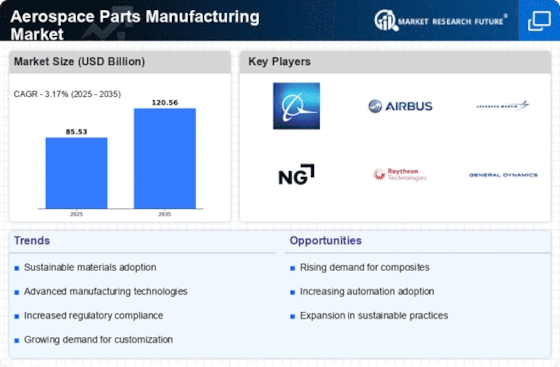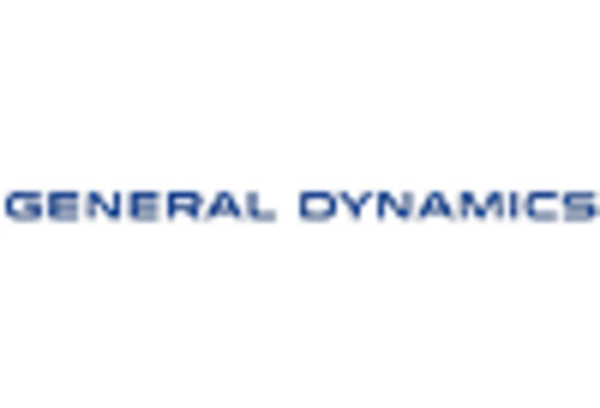Market Analysis
In-depth Analysis of Aerospace Parts Manufacturing Market Industry Landscape
The Aerospace Parts Manufacturing Market operates within a dynamic and intricate ecosystem shaped by various interrelated market dynamics that significantly influence its growth, direction, and competitiveness.
Technological advancements are at the forefront of driving market dynamics in aerospace parts manufacturing. The continuous evolution of aerospace technology demands components that are not only precise but also lightweight, durable, and capable of meeting stringent performance requirements. As aircraft designs advance to become more efficient and technologically sophisticated, aerospace parts manufacturers are under constant pressure to innovate and develop cutting-edge components that align with the industry's technological advancements.
Market demand dynamics play a pivotal role in shaping the aerospace parts manufacturing landscape. The growth of the global aviation sector, propelled by rising air travel demand and the need for new, more fuel-efficient aircraft, fuels the demand for aerospace parts. Commercial airlines seek more cost-effective operations through fuel efficiency, leading to increased demand for parts that contribute to reduced emissions and improved fuel economy. Similarly, the defense sector's modernization programs and the development of advanced military aircraft drive the demand for specialized aerospace parts catering to defense applications.
Economic factors exert a significant impact on the aerospace parts manufacturing industry. Fluctuations in fuel prices, global economic conditions, and geopolitical tensions influence airlines' and defense entities' investment decisions in new aircraft and aerospace systems. Economic shifts can affect the demand for aerospace parts, impacting manufacturing volumes and OEM orders.
Regulatory standards and environmental considerations significantly shape the aerospace parts manufacturing market. The aerospace industry operates under stringent safety regulations and quality standards, necessitating aerospace parts to undergo rigorous certification processes to ensure compliance with safety and performance standards. Additionally, the industry's increasing focus on environmental sustainability drives the demand for parts that contribute to fuel efficiency and reduced emissions, aligning with global efforts to mitigate the environmental impact of aviation.
Supply chain dynamics and geopolitical factors significantly influence the Aerospace Parts Manufacturing Market. The availability of raw materials, geopolitical stability, trade policies, and supply chain disruptions impact the manufacturing process and cost structures within the industry. Any disruptions or uncertainties in the supply chain can impact production schedules and affect manufacturers' ability to meet demand.
Furthermore, technological disruptions, particularly in manufacturing methods like additive manufacturing or 3D printing, are reshaping the market dynamics. Additive manufacturing allows for the production of intricate parts with enhanced design possibilities and reduced lead times. Aerospace parts manufacturers leveraging this technology gain a competitive advantage by offering innovative solutions that meet specific customer needs and industry demands.
However, challenges persist within these market dynamics. Balancing technological advancements with cost-effectiveness remains a challenge for manufacturers. Innovations often come with increased production costs, impacting market adoption. Additionally, navigating complex regulatory landscapes, ensuring reliable supply chains, and addressing geopolitical uncertainties pose ongoing challenges for aerospace parts manufacturers.
In conclusion, the Aerospace Parts Manufacturing Market operates within a multifaceted framework influenced by technological advancements, market demand, economic fluctuations, regulatory standards, supply chain dynamics, and technological disruptions. Successfully navigating these market dynamics requires adaptability, innovation, stringent quality adherence, and a deep understanding of industry trends. Aerospace parts manufacturers that effectively navigate these factors position themselves for sustained growth and competitiveness in this ever-evolving industry.


















Leave a Comment